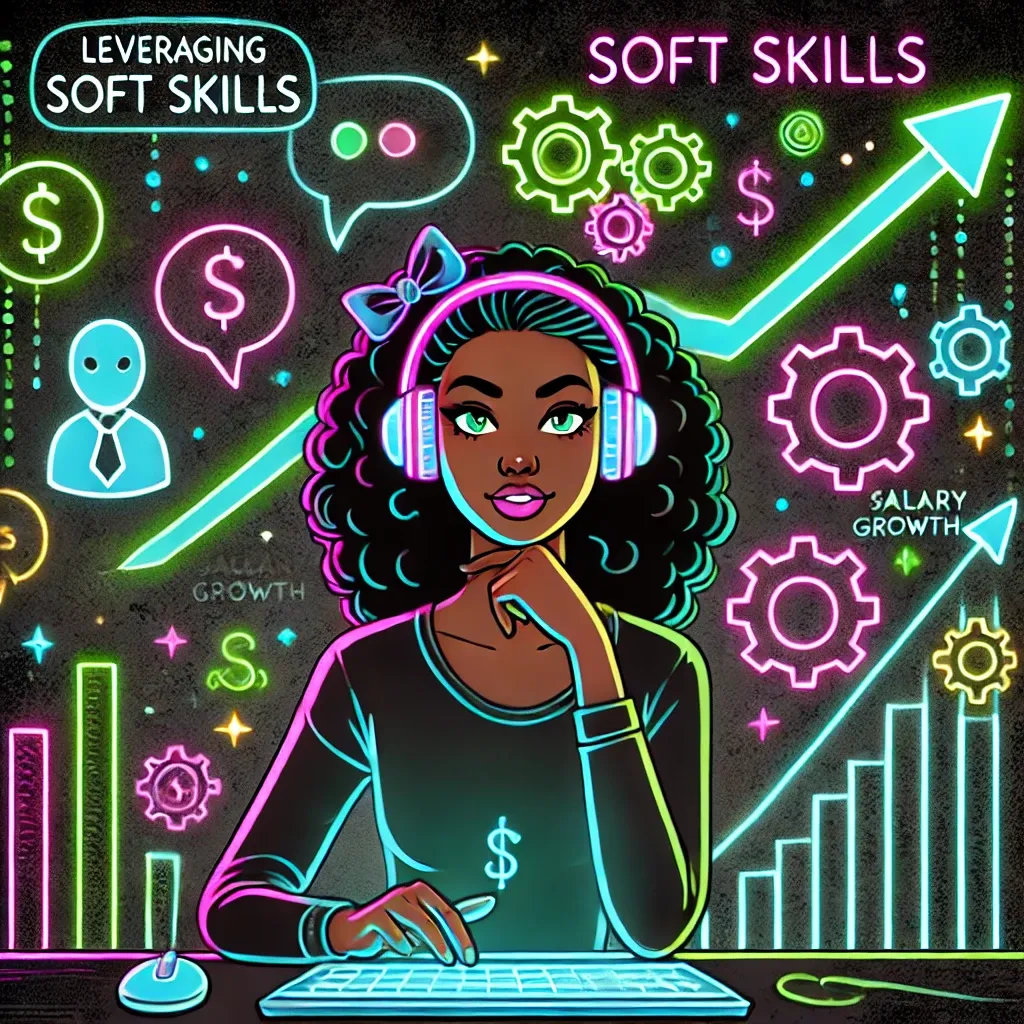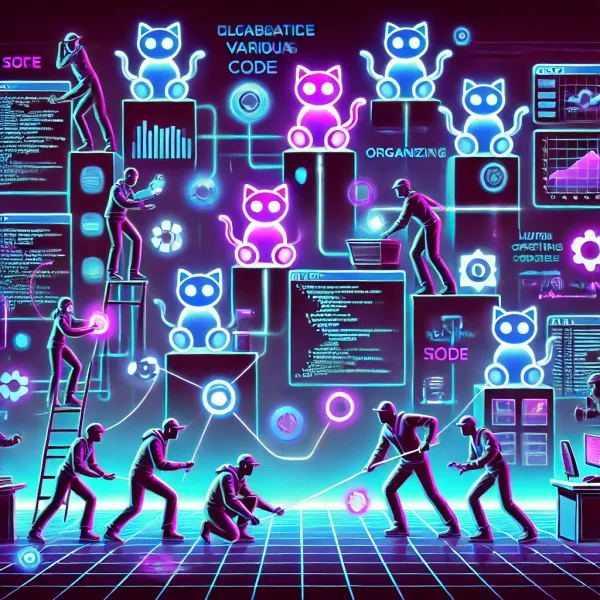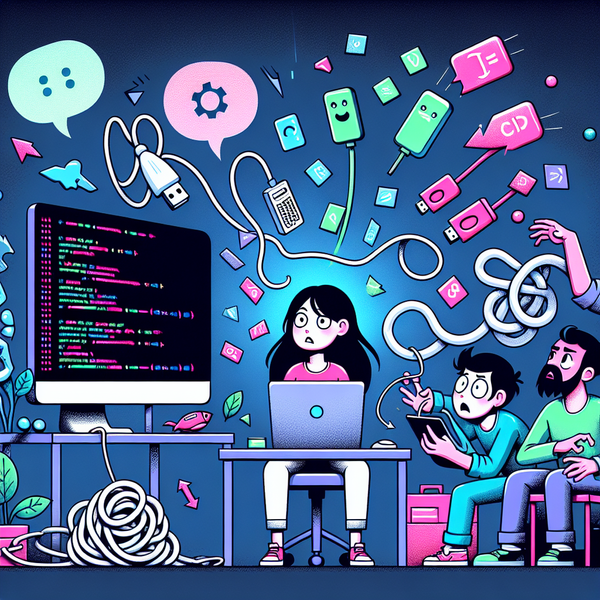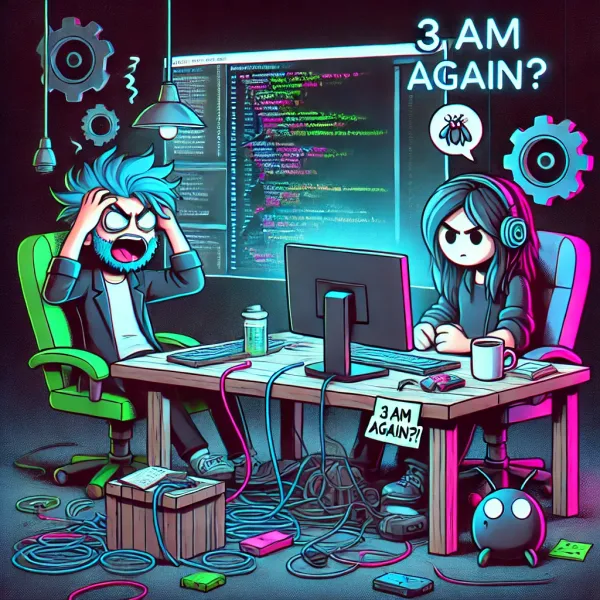How Soft Skills Doubled My Software Engineer Salary
Want to grow as a software engineer? Master the soft skills that actually lead to promotions, bigger salaries, and leadership roles—straight from a senior tech lead who’s interviewed 200+ devs.

I shouldn't share this, but here's how I doubled my software engineer salary without learning new technical skills.
The tech industry has lied to you about what makes a great software engineer.
It's not just about technical prowess.
Soft skills are the actual trigger for career advancement for software engineers.
🎯 Key Takeaways:
- Technical skills are just your entry ticket
- Your soft skills determine how far you go
- Focus on impact, not just activity
- Communication is a technical skill
- Leadership starts before the title
- Business understanding matters more than perfect code
Here's the truth.
I've interviewed over 200 developers in my career.
The ones who got the big offers weren't always the best coders.
The ones that stood out were the ones that mastered the soft skills that coding bootcamps don't teach.
Let me save you years of career stagnation.
When you get stuck at your current job level, your LeetCode score isn't the problem.
Your soft skills are.
Here's the playbook that transformed me from a quiet junior developer to a sought-after senior software engineer.
But first, a reality check
Uncle Bob made me think that writing clean code was enough.
Then I watched developers with average technical skills get promoted over coding wizards.
Why? Because they understood that software engineering soft skills weren't optional anymore.
Soft skills separate high-earning developers from the rest.
They're your secret weapon.
Here are the soft skills that matter for software engineers.
First up: Strategic Communication.
It's about being an effective communicator, not just a good one.
Learn to understand your audience. The details your PM needs are different from the info you give to fellow devs.
Master the five-sentence email.
You need a meeting if you can't communicate your point in five sentences.
And please, learn when to talk tech and when to talk business. Your CEO doesn't care about your elegant recursion.
Next up: Tactical Empathy.
Once you understand what stakeholders want, empathize with their position.
Meet them halfway if you can't deliver exactly what they want by the deadline.
Doing this helps them figure out what features are critical.
Navigate team politics without getting dragged into the drama.
Most importantly, you should translate your technical decisions into business speak.
Let's talk Professional Presence.
Present your solutions confidently, even when you're not 100% sure.
Handle pushback gracefully, not with a wounded ego.
Build a personal brand. Yes, engineers need those in the workplace.
Here's the big one: Strategic Problem-Solving.
Don't just patch bugs, find the root cause.
Look beyond the technical elegance.
Solve problems in a way that will help the business.
Always present multiple solutions. Let business partners choose between good options.
And think ahead. Way ahead. What breaks next if we fix this now?
Finally: Project Leadership.
Title or not, take ownership of everything you're involved in.
Mentor others without being asked. Trust me, people notice.
Drive consensus across teams even when they're fighting each other.
Decisions will stick because you did the work to make them stick.
These qualities separate the great engineers from the good ones.
Senior engineers know some things that juniors don't.
Technical skills get you hired.
Soft skills get you promoted.
Here is what matters at each level.
Junior Software Engineer Soft Skills:
- Active listening (stop coding while someone's talking)
- Basic professional communication
- Willingness to learn
- Team collaboration
- Time management
Senior Software Engineer Soft Skills:
- Strategic influence
- Project leadership
- Mentorship abilities
- Cross-functional collaboration
- Business acumen
Good hiring teams don't interview you to test your knowledge of algorithms.
Even if they give you a LeetCode-style problem, they want to know if you can:
- Explain technical concepts clearly
- Handle disagreement professionally
- Ask clarifying questions
- Show curiosity and problem-solving skills
- Present your thought process confidently
Often overlooked in software engineer interviews, these soft skills are more crucial than you might realize.
They can be the deciding factor between landing the job and being overlooked.
Stop listing "good communicator" on your software developer resume.
Instead, prove it with results:
- "Facilitated cross-functional team meetings, reducing miscommunication and accelerating project delivery by 20%"
- "Mentored 3 junior developers, leading to their promotions within 12 months and improving overall team velocity."
- "Improved team velocity 40% through better requirement gathering processes"
Show the impact of your soft skills to get your resume noticed.
Here are some practical things you can do to level up your soft skills as a software engineer.
Master Communication
- Record yourself explaining technical concepts
- Practice writing one-paragraph technical summaries
- Learn to read facial expressions in meetings
Develop Leadership
- Volunteer for cross-team projects
- Start documenting team knowledge
- Mentor a junior developer
Show Business Acumen
- Read your company's quarterly reports
- Understand your product's market position
- Learn basic project economics
Foster Emotional Intelligence
- Practice active listening
- Learn to give constructive feedback
- Develop conflict resolution skills
Learn Effective Time Management
- Master the art of saying no
- Learn to prioritize impact over effort
- Develop estimation skills
Get ahead of the competition in 12 weeks with this plan.
Weeks 1-4: Communication Focus
- Record yourself explaining one technical concept daily
- Practice active listening in every meeting
- Start a technical blog
Weeks 5-8: Leadership Development
- Take ownership of one struggling project
- Create team documentation
- Mentor someone informally
Weeks 9-12: Business Impact
- Learn your product's business metrics
- Connect with product managers
- Understand customer pain points
The Uncomfortable Truth
Most software engineers never reach their potential because they optimize for the wrong things.
Stop spending all your time on technical skills.
Those will naturally progress as you gain experience.
Start investing in good soft skills that drive software engineering career growth.
Your future self will thank you.
And so will your bank account.
The best software engineers aren't just great coders.
They're great professionals who happen to code.




